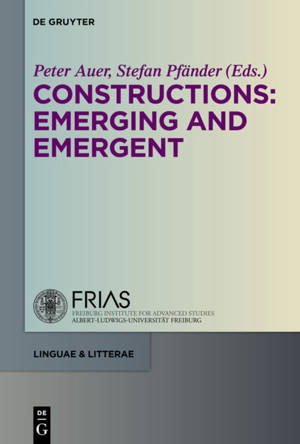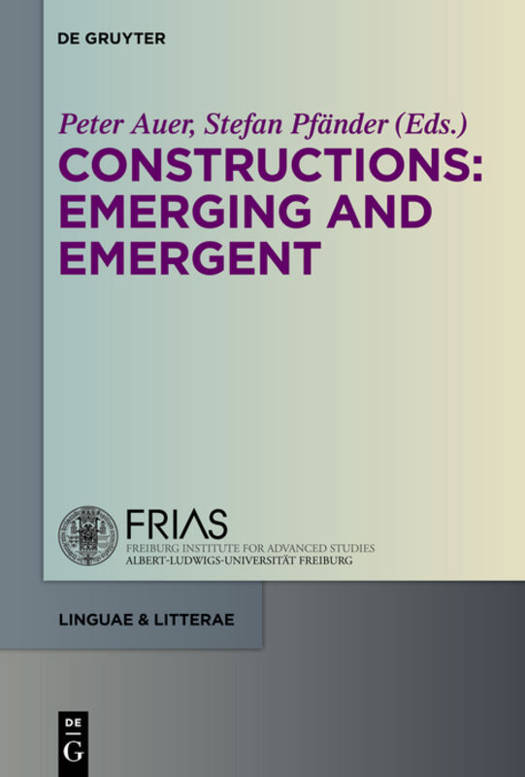
- Retrait gratuit dans votre magasin Club
- 7.000.000 titres dans notre catalogue
- Payer en toute sécurité
- Toujours un magasin près de chez vous
- Retrait gratuit dans votre magasin Club
- 7.000.000 titres dans notre catalogue
- Payer en toute sécurité
- Toujours un magasin près de chez vous
Description
This volume embarks on an exploration of the processual and dynamic character of grammatical constructions in emergence, both from an 'emergent' and an 'emerging' perspective. 'Emerging' constructions develop out of their discourse contexts. Talking of emerging constructions is compatible with a view of grammar as a stable system of rules and structures which may 'emerge' (i.e., come into existence) out of a pool of previously unordered elements. 'Emergent' constructions on the contrary are due to the on-line production of grammar in time. The term 'emergent' emphasises the fact that a grammatical structure is always temporary and ephemeral. In both senses, grammar is modelled as a highly adaptive resource for interaction.
On the basis of empirical studies on spoken English, German, Hebrew, Swedish and French, the volume addresses the following questions: How can what initially appears to be construction x end up being construction y in on-line syntax? What are the local interactional needs which such processes respond to in the process of their emergence? Does the on-line (re-)modelling of a construction concern its syntactic or semantic side - or both? And finally: Should emergent grammatical structures as they unfold in real time be seen as stages in the emerging of grammar?
Spécifications
Parties prenantes
- Auteur(s) :
- Editeur:
Contenu
- Nombre de pages :
- 337
- Langue:
- Anglais
- Collection :
- Tome:
- n° 6
Caractéristiques
- EAN:
- 9783110229073
- Date de parution :
- 29-08-11
- Format:
- Livre relié
- Format numérique:
- Genaaid
- Dimensions :
- 156 mm x 234 mm
- Poids :
- 653 g







